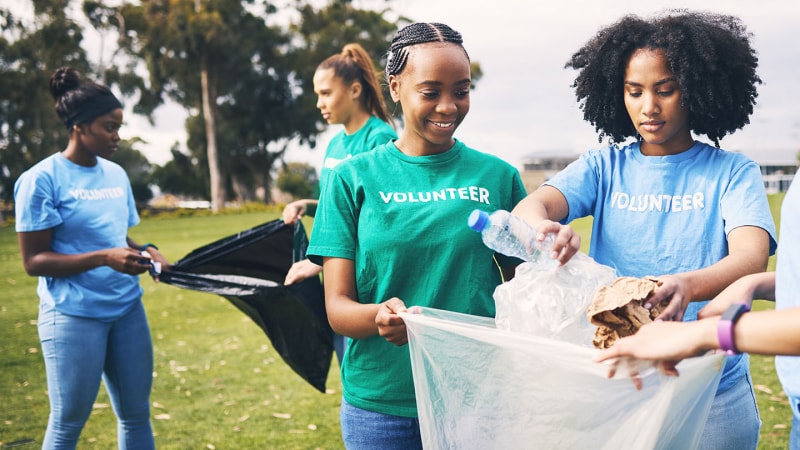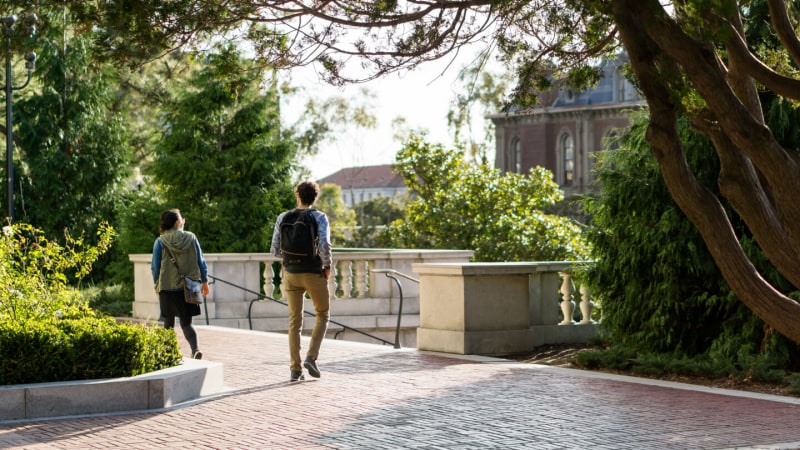Does volunteering actually matter on college applications?

Figuring out how to stand out to colleges during the admissions process can be challenging. So much advice about how to best do this gets thrown around, and it can be hard to sort through it all. For instance, some say it helps to have internship experience, others say it matters to have a demonstrated proficiency in a second language, and some say advanced placement (AP) classes make all the difference.
One piece of advice that many give to those going through the college admissions process is that volunteering can help you stand out among applicants. Given how much advice there is to navigate through, though, you may find yourself wondering, will volunteering actually help me gain admission to some colleges? Do colleges really look at volunteer hours when reviewing applications?
To get the lowdown, we posed this question to a college consulting company IvyWise’s college admissions counselor Robin Miller (also a former Senior Assistant Director of Admission at Georgetown University and an admissions officer at Vanderbilt University), about the importance of volunteering when it comes to college admissions.
Do colleges care about volunteer hours?
Per Miller, the answer is yes; colleges do like to see students seeking ways to be involved and making an impact in their school and local community.
“It is not uncommon for high schools to require a certain amount of volunteer hours as part of a student's graduation requirement, so students who choose to be authentically involved in volunteer work that goes beyond their graduation requirement are showing colleges what they value and what issues [and] causes matter to them,” she shared.
“Volunteering allows students to demonstrate to colleges how their personal values align with the college's overall mission while also showing the colleges how they will be an impactful, contributing member of that school's community.”
What do colleges look for in volunteer work?
Colleges may look favorably upon students who’ve shown sustained commitment to a particular cause or issue.
Therefore, students may consider volunteering for something personally meaningful to them throughout their high school career.
“Students can gain a lot of personal fulfillment from a range of volunteer opportunities, but colleges are looking for more than a laundry list of ‘one and done’ experiences,” per Miller. “Volunteering might also give students an opportunity to step into leadership roles where they can have an even more significant impact.”
How many volunteer hours are enough?
Students might want to consider taking a holistic approach when figuring out how much time to volunteer ahead of college. “Rather than being concerned about the quantity of volunteer hours a student has accrued – there is not a certain number of hours colleges look for – colleges are much more interested in the quality of a student's volunteer involvement,” per Miller.
“The quality of the volunteer initiatives the student is part of and how those initiatives connect with the student's interests is what matters to a college more so than the quantity of volunteer hours or the number of volunteer activities the student has been part of.”
What are the best ways to choose volunteer opportunities?
Students who want to volunteer should find out what their local community needs. This can help them decide how to participate and make a positive impact. That could even mean forming their own service organization to address a specific need.
It’s important to keep in mind that, ultimately, the best type of volunteer activity is one that resonates with a student's values and interests and inspires the student to be fully invested in making a genuine impact for years to come.
“A student interested in environmental science might volunteer with a local ecological organization or take the initiative to organize a monthly neighborhood clean-up,” Miller suggested. “Students with an interest in the arts might volunteer to teach painting, singing, or dance lessons at a local community center. Student-athletes can volunteer at a local sports camp or perhaps serve as an assistant youth coach at a local school. There are endless possibilities.”
Final thoughts
Volunteering allows you the opportunity to help others and your community and can provide you with a feeling of accomplishment. Knowing you’re helping others and making your community a better place may give you a sense of pride and identity, regardless of whether it helps you get into college. There’s a volunteer opportunity out there for everyone. It’s best to reach out to organizations in your community to see how you can get involved.



